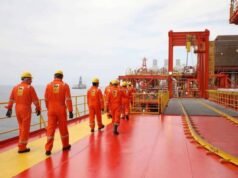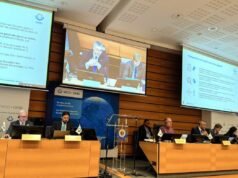Preventing the emission of toxic gases into the atmosphere from vessels is one of the main objectives of the “Azerbaijan Caspian Shipping Company” CJSC (ASCO). To achieve this goal, ASCO is taking significant measures in accordance with the Environmental and Social Governance (ESG) management system, as well as the requirements of the International Maritime Organization and several other classification societies to reduce emissions, which came into effect on January 1, 2023.
In this context, timely operational maintenance of vessels and their engines, servicing of oil and fuel separators, substantial reduction of heavy fuel usage and optimizing vessel speed to minimize additional fuel consumption during operation are particularly crucial.Requirements from part 3 of ASCO Ship Energy Efficiency Management Plan (SEEMP III), Carbon Intensity Indicator (CII) Plan, and the European Union Monitoring, Reporting and Verification Plan (EU MRV) have also been implemented. To enhance and monitor energy efficiency in line with the requirements of Annex VI of the MARPOL Convention, vessels are provided with a “Ship Energy Efficiency Management Plan” consisting of three parts. The CII Plan aims to take regular operational measures to improve the vessel’s carbon dioxide emission performance. Under this plan, the vessel’s performance is assessed using a relevant scale, assigning it a carbon intensity rating, and approving an annual action plan. The essence of the EU MRV plan lies in the accurate implementation of possible measures to reduce emissions on ships. It includes reporting on carbon emissions based on relevant methodologies and ensures transparency in the reporting processes. Currently, the CII plan applies to vessels with a displacement of over 5000 tons navigating in international waters, while the EU MRV plan applies to vessels calling at European ports. Consequently, 31 vessels owned by ASCO have already been provided with plans under SEEMP III, while plans according to CII and EU MRV have been developed for 5 vessels of the company.
As a result of the work carried out in the recent period, the sulfur content in the fuel used on ships has been reduced by 6%. Cleaning the lower parts of specialized fleet vessels twice a year has saved 1-2% of fuel.
In the upcoming period, there are plans to implement incentives for crew members who actively contribute to enhancing fuel efficiency, establish a digital panel for monitoring emissions, and adopt standards such as ISO 14060 and others associated with emissions inventory.asco.az







